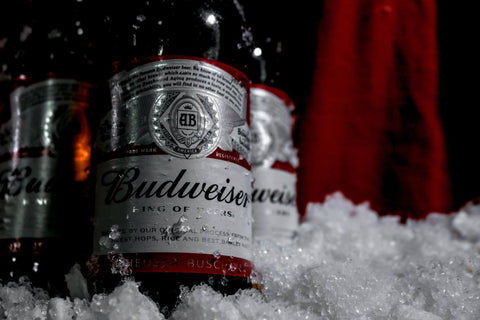Who doesn’t love a craft beer? There’s something special about knowing the amount of work that went into it, between getting the right equipment, to learning the art, to taste-testing and rejecting, and whatever else. But what makes a “craft beer” different from, say, a Budweiser? Isn’t the goal to become as big and famous as one of the all-time classics? Let’s dive into it and see if we can make a thorough distinction.
Small vs. Large Scale Operations
The most obvious difference between craft beer and Budweiser is the size of the brewery. Craft breweries are defined by their small-scale production, typically producing fewer than 6 million barrels of beer annually, while Budweiser is brewed by Anheuser-Busch, one of the largest beer companies in the world. This smaller scale allows craft brewers to focus on creativity and innovation, often experimenting with new styles, flavors, and ingredients that simply wouldn’t be feasible for larger producers. Budweiser, on the other hand, has to meet rigorous standards for continuity.
Quality and Variety of Ingredients
Craft brewers pride themselves on using high-quality ingredients, often opting for locally sourced grains, hops, and other additions. The focus is on delivering a premium product with unique flavor profiles. You’ll find everything from exotic fruits and spices to barrel-aged brews crafted with care and attention to detail.
In contrast, Budweiser and other mass-produced beers are designed for consistency and efficiency. While they certainly have their place as an accessible and affordable option, their focus is often more on cost-effective production and mass appeal, resulting in simpler, more uniform flavors. Budweiser is known for its classic, crisp taste, but it lacks the complexity and variety that craft beer drinkers seek. This way, they are producing a repeatable formula that can be sold at the volume they’ve deemed financially lucrative.
Innovation vs. Tradition
One of the hallmarks of craft beer is innovation. Craft brewers are constantly experimenting with new brewing trends, techniques, and ingredients, giving rise to exciting styles like hazy IPAs, kettle sours, and barrel-aged stouts. This commitment to pushing the boundaries of beer-making is what keeps the craft beer scene dynamic and fresh.
On the other hand, Budweiser is deeply rooted in tradition. Its brewing process has remained largely unchanged over the decades, relying on tried-and-true methods to deliver a consistent product. While Budweiser’s stability is part of its appeal, it doesn’t offer the same sense of adventure and exploration that many craft beer enthusiasts crave.
Ownership and Independence
Craft brewers are fiercely independent, often operating as small, family-run businesses. This independence allows them to prioritize creativity, quality, and community involvement over shareholder profits. Many craft breweries also play a pivotal role in their local economies, sourcing ingredients locally and supporting other small businesses.
Budweiser, on the other hand, is owned by Anheuser-Busch InBev, a multinational corporation that controls a significant portion of the global beer market. While this provides Budweiser with vast distribution capabilities and marketing power, it also means that their focus is more on global consistency and profitability than on local engagement and small-batch craftsmanship.
Unique vs. Familiar Experience
Perhaps the biggest difference between craft beer and Budweiser is the drinking experience. Craft beers are often designed to be savored, with unique flavors that invite exploration and conversation. Whether you're sipping on a fruit-forward sour or a coffee-infused stout, each craft beer has a story behind it, and the complexity of flavors encourages drinkers to slow down and appreciate every sip.
Budweiser, in contrast, offers a familiar, no-frills experience. It’s a beer that’s designed to be refreshing, easy-drinking, and approachable, making it a go-to for casual occasions. While it may not offer the same depth of flavor as a craft beer, its simplicity is exactly what many drinkers love about it.
In the end, the choice between craft beer and Budweiser comes down to what you're looking for in a beer. If you value variety, creativity, and supporting local businesses, craft beer is the way to go. But if you prefer a reliable, straightforward brew that’s easy to drink and widely available, Budweiser might be your go-to.
At Brewfits, we celebrate the diversity of the beer world. Whether you’re cracking open a cold Budweiser or indulging in a bold craft brew, there’s a beer for every occasion—and we’re here to help you find it.





